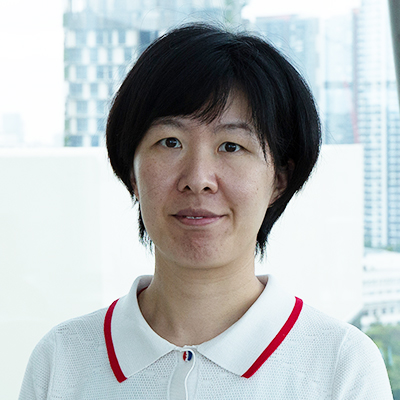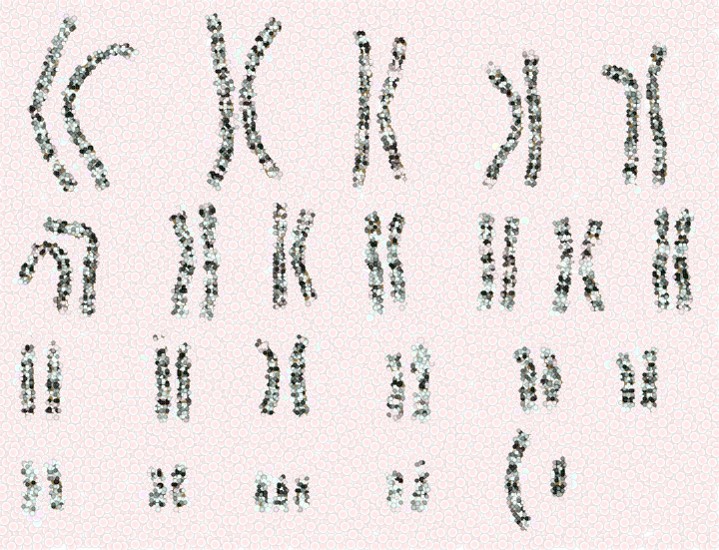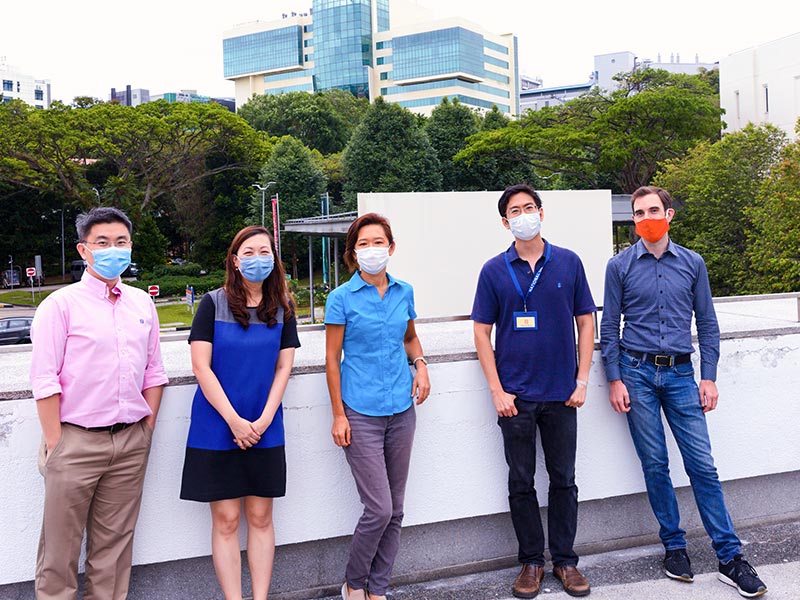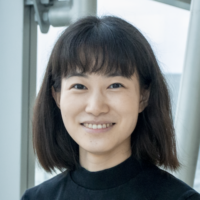
Rong LI
Professor, Mechanobiology Institute, National University of Singapore
mbihead@nus.edu.sg
10-03C
Level 10 T-Lab
National University of Singapore
5A Engineering Drive 1
Singapore 117411
Laboratory website
Rong Li Lab: Cell Dynamics and Mechanics in Development, Aging and Adaptation
Rong Li Lab (Johns Hopkins): Cellular asymmetry, division & evolution
Disrupted Cell-Matrix Interactions Drives Aging and Reveals New Paths for Skin Regeneration
Researchers from the Li Lab discover how α5-integrin–FN interactions preserve dermal integrity, offering new insights for antiaging strategies targeting ECM organization and fibroblast function.
Felix Uecker
Research Fellow, Li Group
Yao Ye
Research Fellow, Li Group
MBI Director Rong Li elected as ASCB Fellow
Congratulations to MBI Director Prof. Rong Li on her election as a Fellow of the American Society for Cell Biology.
Understanding the effects of aneuploidy
A review from Prof Rong Li and Dr. Jin Zhu outlines the the causes of aneuploidy and how it can affect cell behaviour and function. Learn more
MBI PIs win MOE AcRF Tier 3 grant to study endomembrane aging
A research team led by Mechanobiology Institute (MBI) Principal Investigators Assoc. Prof. Tony Kanchanawong and Prof. Rong Li was recently awarded a Ministry of Education Academic Research Fund (MOE AcRF) Tier 3 grant.
Rong Li
Director and Distinguished Professor
Research Areas
Cellular dynamics and mechanics, cell and tissue aging and regeneration, chromosomal biology in cellular adaptation
Research Interests
The diverse projects in Professor Rong Li’s lab contribute to two main research thrusts: cell and tissue aging; cellular and organismal adaptation. The study on aging focuses on understanding dynamic changes of crucial cellular components during the aging process and how these changes alter the mechanical functions of cells and tissues. The insights gained will be applied to the development of new methods for prolonging healthy aging and the repair and regeneration of deteriorated functions. The study of adaptation aims to understand the dynamics of genetic and epigenetic determinants of cells and tissues under acute or chronic stress which lead to adaptive behaviors ultimately beneficial or detrimental to the fitness of the organism. A potential application of the discoveries in this area is the prevention of cancer associated with chronic inflammatory diseases.
Biography
Professor Rong Li came from Johns Hopkins University where she served as the Director of the Center for Cell Dynamics in the Johns Hopkins School of Medicine. She has had over 25 years of independent research on cellular dynamics and mechanics employing interdisciplinary approaches. She was recruited to NUS in 2019 as the second Director of MBI succeeding Professor Michael Sheetz.
Education
Combined BS and MS in Molecular Biophysics and Biochemistry, Yale University, 1988
PhD in Biophysics and Biochemistry, University of California San Francisco, 1992
Recent Publications
- Lu Y, Walji T, Pandey P, Zhou C, Habela CW, Snapper SB, Li R, and Chen EH. Branched actin polymerization drives invasive protrusion formation to promote myoblast fusion during mouse skeletal muscle regeneration. Elife 2026; 14. [PMID: 41608858]
- Liu AZ, Narkar A, Li K, Bertomeu T, Johnson BA, Coulombe-Huntington J, Dong Y, Zhu J, Tyers M, and Li R. The scaffold protein PRR14L links the PP2A-TACC3 axis to mitotic fidelity and sensitivity to MPS1 inhibition. bioRxiv 2025;. [PMID: 41279925]
- Wang H, Huang Z, Shen X, Lee Y, Song X, Shu C, Wu LH, Pakkiri LS, Lim PL, Zhang X, Drum CL, Zhu J, and Li R. Publisher Correction: Rejuvenation of aged oocyte through exposure to young follicular microenvironment. Nat Aging 2025;. [PMID: 40987959]
- Lee Y, Shen X, Dreesen O, Zhua J, and Li R. Dysregulation of Extracellular Fibronectin and 5-integrin in Dermal Aging. Mol Biol Cell 2025;:mbcE25020074. [PMID: 40560397]
- Zhu J, Chan SJW, Cui H, Mikhalovsky AA, Garcia FL, Goh BYW, Soh WWM, Moreland AS, Limwongyut J, Shyamasundar S, Wu Y, Liang F, Li R, and Bazan GC. Mechanosensitive Conjugated Oligoelectrolytes for Visualizing Temporal Changes in Live Cells. Angew Chem Int Ed Engl 2025;:e202506396. [PMID: 40325862]
- Liu S, Meng Y, Lan X, Li R, and Kanchanawong P. Ground-state pluripotent stem cells are characterized by Rac1-dependent Cadherin-enriched F-actin Complexes. J Cell Sci 2025;. [PMID: 39886806]
- Li Y, Ong HT, Cui H, Gao X, Lee JWN, Guo Y, Li R, Pennacchio FA, Maiuri P, Efremov AK, and Holle AW. Confinement-sensitive volume regulation dynamics via high-speed nuclear morphological measurements. Proc Natl Acad Sci U S A 2024; 121(52):e2408595121. [PMID: 39700138]
- Lu Y, Walji T, Ravaux B, Pandey P, Yang C, Li B, Luvsanjav D, Lam KH, Zhang R, Luo Z, Zhou C, Habela CW, Snapper SB, Li R, Goldhamer DJ, Schmidtke DW, Pan D, Svitkina TM, and Chen EH. Spatiotemporal coordination of actin regulators generates invasive protrusions in cell-cell fusion. Nat Cell Biol 2024;. [PMID: 39487253]
- Wu H, Wang LC, Sow BM, Leow D, Zhu J, Gallo KM, Wilsbach K, Gupta R, Ostrow LW, Yeo CJJ, Sobota RM, and Li R. TDP43 aggregation at ER-exit sites impairs ER-to-Golgi transport. Nat Commun 2024; 15(1):9026. [PMID: 39424779]
- Lu Y, Walji T, Pandey P, Zhou C, Habela CW, Snapper SB, Li R, and Chen EH. Branched actin polymerization drives invasive protrusion formation to promote myoblast fusion during skeletal muscle regeneration. bioRxiv 2024;. [PMID: 39416162]
Lab Members
Lim Choon Kiat
Senior Research Fellow, Li Group
ZHUANG Zirui
PhD Student, Class of August 2025, Li Group
QUAN Cheng
PhD Student, Class of August 2025, Li Group
Hannah Fung
Research Fellow, Li Group
Goh Jia Lin Kellisa
PhD Student, Class of August 2024, Li Group
Ivo Johannes Hendrikus Marie de Vos
Research Fellow, Li Group
Xiaohong Yao
Research Fellow, Li Group
Sujana Andra
Research Assistant, Li Group
Li Keming
PhD Student, Class of August 2022, Li Group
Lan Xi
PhD Student, Class of August 2022, Li Group
Stefan Mueller
Research Fellow, Li Group
Cui Hongyue
PhD Student, Class of August 2021, Li Group
Shu Chang
PhD Student, Class of August 2021, Li Group
Seah Kwi Shan
Research Fellow, Li Group
Shen Xingyu
PhD Student, Class of January 2021, Li Group, Young Group
Alokendra Ghosh
Schmidt AI in Science Postdoctoral Fellow, Li Group
Wong Bin Sheng
Research Fellow, Li Group

























